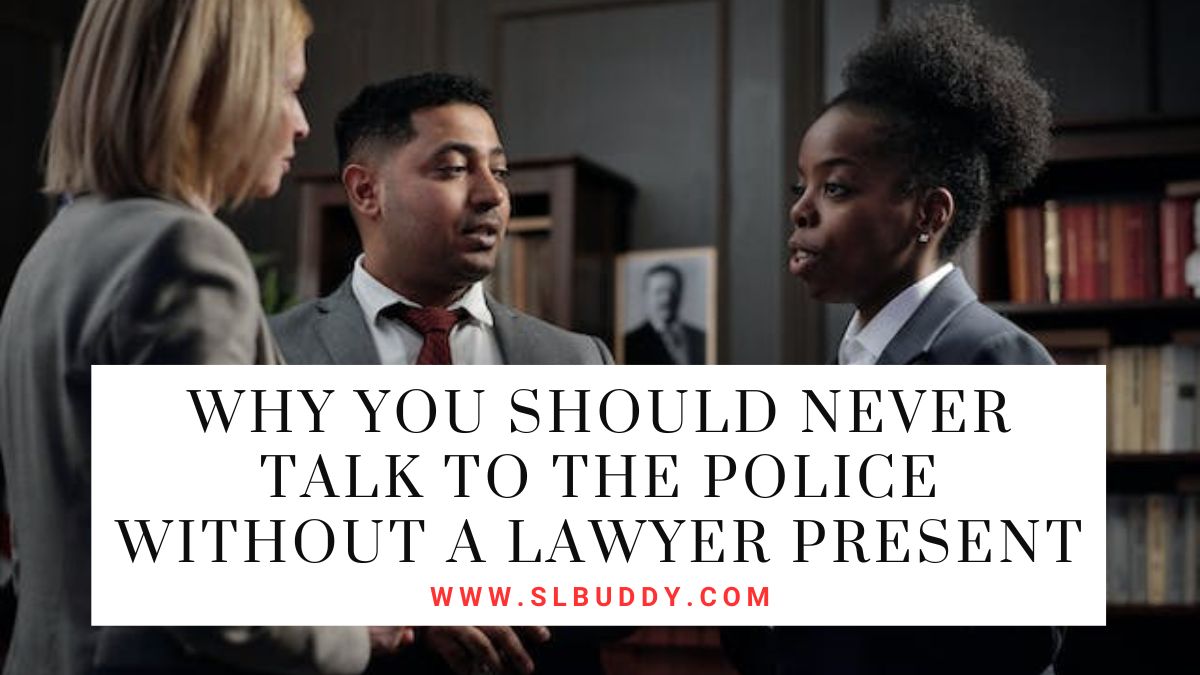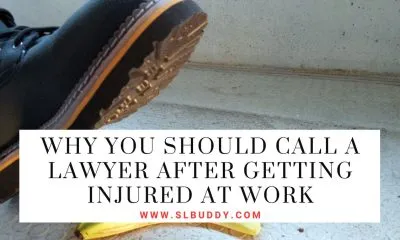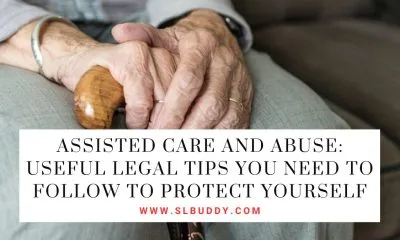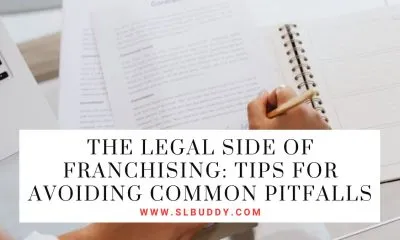
If you find yourself in a situation where you’re being questioned by the police, it’s crucial to understand your rights and make informed decisions.
One of the most fundamental pieces of advice is never to talk to the police without a lawyer present.
Here are some of the reasons why this advice is not just a legal precaution but a fundamental safeguard to protect yourself during police interactions.
Preservation of Your Rights
When faced with police questioning, you have the constitutional right to remain silent. Anything you say can and will be used against you in court.
By choosing to exercise your right to remain silent and insist on the presence of a lawyer, you safeguard yourself from unintentionally providing information that may be used against you later. Seeking criminal lawyers brisbane online can help you find legal counsel immediately and secure your rights.
Remember, what might seem innocuous at the time could be misinterpreted or used strategically against you in legal proceedings.
Avoiding Miscommunication and Misinterpretation
Interactions with the police can be intense and stressful. In the heat of the moment, it’s easy for miscommunication to occur.
Even the most well-intentioned statements can be misinterpreted, potentially leading to legal complications.
With a lawyer present, you have a legal professional who can help ensure that your words are accurately represented, minimizing the risk of miscommunication and its potential consequences.
# Clarifying Ambiguous Statements: Your lawyer can intervene to seek clarification if the police misinterpret or misconstrue your statements. They can ensure that your words are accurately understood, reducing the chances of unintended consequences.
# Guidance on What to Disclose: A lawyer can guide what information is necessary to disclose and what may be better left unsaid. This strategic approach helps in presenting your case without inadvertently providing information that could be used against you.
# Documenting Communication: Your lawyer can document the entire communication process, ensuring an accurate record of what was said and how it was interpreted. This documentation can be valuable in building a strong defense strategy, especially if miscommunication becomes a focal point in legal proceedings.
Navigating Legal Complexity
The legal system is intricate, and understanding the nuances of criminal law requires expertise.
Without a lawyer, you may inadvertently say something that could harm your case or make your situation more challenging.
Lawyers are trained to navigate legal complexities, and having one by your side ensures that you receive proper legal counsel throughout the questioning process, safeguarding your interests.
Protection Against Coercion or Intimidation
Police interrogations can be intimidating, and individuals may feel pressured to answer questions without a clear understanding of the potential consequences.
Having a lawyer present acts as a crucial buffer against coercion or intimidation tactics.
Your lawyer can intervene if they perceive any unfair tactics, protecting your rights and ensuring a fair legal process.
# Asserting Your Right to Silence: Your lawyer can remind law enforcement of your right to remain silent, preventing any attempts to coerce or intimidate you into providing self-incriminating information.
# Monitoring Questioning Tactics: Lawyers are trained to recognize coercive or manipulative questioning tactics. With their presence, they can monitor the interrogations closely, ensuring that the process adheres to legal standards.
# Advising on Appropriate Responses: A lawyer can guide you on how to respond appropriately to challenging or aggressive questioning without jeopardizing your case. This includes when to assert your rights and when to provide limited information.
# Documentation and Record Keeping: Your lawyer can document any instances of coercion or intimidation during the interrogation. This documentation can later be used as evidence in court to challenge the admissibility of statements made under duress, strengthening your defense.
Legal Strategy and Defense
Having a lawyer present during police questioning is not just about protection during the immediate interaction; it’s also a strategic move for your defense.
Lawyers are trained to analyze the situation from a legal standpoint and formulate the best strategy for your case.
They can advise you on what to say, what not to say, and how to present your side of the story in the most favorable light.
Your lawyer will work towards building a strong defense from the very beginning, potentially influencing the outcome of the case in your favor.
Understanding the Potential Charges
Police investigations can evolve, and charges may be added or modified as more information becomes available.
Without a lawyer present, you may not fully comprehend the potential charges you might face.
Lawyers can help decipher the legal jargon, explain the implications of specific charges, and guide you on how to navigate the complexities of the legal system.
This understanding is crucial for making informed decisions, whether it involves cooperating with the authorities or invoking your right to remain silent.
Preventing Self-Incrimination
In the absence of legal guidance, individuals may unintentionally provide information that could be self-incriminating.
It’s easy to make statements that, when taken out of context, could be used against you.
Lawyers are skilled in advising clients on what information is safe to disclose and what should be avoided.
By having a lawyer present, you reduce the risk of saying something that could potentially harm your case or be misconstrued by law enforcement.
# Navigating Complex Legal Language: Lawyers are well-versed in legal terminology and nuances, helping you understand the potential implications of your statements. They can guide you on how to express yourself clearly without inadvertently providing information that may be misconstrued as self-incriminating.
# Strategic Use of the Right to Remain Silent: Your lawyer can strategically assert your right to remain silent during critical moments in questioning. This ensures that you avoid making statements that could later be used against you and allows you to control the flow of information in a way that protects your legal interests.
# Advising on Voluntary Statements: Lawyers can provide counsel on whether, when, and how to make voluntary statements. They will assess the potential risks and benefits of providing information and advise you on the most advantageous course of action to protect your rights and minimize the risk of self-incrimination.
Don’t miss: The Legal Consequences of DUI: A Closer Examination
The bottom line
From preserving your rights and avoiding miscommunication to navigating legal complexity, protecting against coercion, strategizing your defense, understanding potential charges, and preventing self-incrimination, the presence of a lawyer is indispensable.
Remember, asserting your right to legal representation is not an implication of guilt but a proactive measure to ensure a fair legal process and safeguard your interests.
In any police interaction, prioritize your rights and seek legal counsel to navigate the complexities of the legal system effectively.














